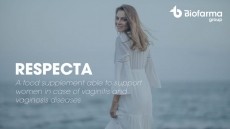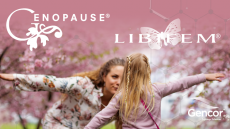Soy and breast cancer – isoflavones don’t affect breast density, says trial
Postmenopausal women given two different doses of soy isoflavones did not experience any changes in the density of breast tissue, according to results of the Osteoporosis Prevention Using Soy (OPUS) study published in the Journal of Nutrition.
“These findings offer reassurance that isoflavones do not act like hormone replacement medication on breast density,” wrote the authors, led by Dr Gertraud Maskarinec from the Cancer Research Center of Hawaii.
Soy isoflavones are naturally occurring oestrogen-like compounds, and supplements are currently marketed as a way of reducing symptoms of the menopause and offer an alternative to hormone replacement therapy.
Conflicting reports however have clouded the picture about the beneficial effects of soy isoflavones, with some studies indicating that breast cancer cells in mice were stimulated by the isoflavones. Population studies have shown that women with a high-soy diet generally have lower rates of breast cancer.
“Although we did not observe a beneficial effect of soy-derived isoflavones on mammographic densities during a 2-y randomized trial with .300 women, there was also no sign of any adverse effects,” wrote Maskarinec and her co-workers.
“These findings do not exclude the possibility that breast cancer risk may be reduced as a result of isoflavone exposure earlier in life or through alternate mechanisms of action than through mammographic densities.”
Indeed, findings of a study published last month (Cancer Epidemiology, Biomarkers and Prevention, doi: 10.1158/1055-9965.EPI-08-0405) suggested that high intakes of soy during childhood may reduce a woman’s risk of breast cancer later in life by 58 per cent. Furthermore, the study, limited to Asian Americans, found that high soy intakes during adolescence and as adults were associated with a 20 to 25 per cent reduction.
New data
Dr Maskarinec and her co-workers recruited 358 postmenopausal women with an average age of 55 and randomly assigned them to receive a placebo or one of two soy isoflavone groups (80 or 120 mg per day) for two years.
The authors note that these doses are equivalent to the amounts of isoflavones provided in two to four cups soy milk every day.
Results of mammograms revealed a yearly decrease of 1.6 per cent across all the groups, with no difference between the groups when the results were controlled for age and obesity.
“The fact that hormone replacement therapy interventions, primarily those with progestins, and not those with estrogens alone, modify breast density while soy isoflavones do not, offers some reassurance to those who have been concerned about adverse effects of soy supplementation on breast cell proliferation,” wrote the researchers.
“Furthermore, when adult soy exposure was analyzed in relation to breast density, women reporting regular soy intake had a faster decline in mammographic densities than those who did not consume soy foods,” they added.
While some questions remain over isoflavones and breast cancer risk reduction, the compounds remain popular as an alternative to hormone replacement therapy for those wishing to control menopause symptoms without resorting to drugs.
The other authors were affiliated with the University of California, Davis, Oregon Health and Science University, the University of Georgia, Athens, Northern California Fertility Medical Center, and Baylor College of Medicine, Houston.
Source: Journal of Nutrition May 2009, Volume 139, Pages 981-986“Various doses of soy isoflavones do not modify mammographic density in postmenopausal women” Authors: G. Maskarinec, M. Verheus, F.M. Steinberg, P. Amato, M.K. Cramer, R.D. Lewis, M.J. Murray, R.L. Young, W.W. Wong











